When it comes to the hiring process the job interview is one of the best ways to set yourself apart from your competition. You can illustrate to the interviewer that you belong at the company and share information about yourself to show that you are a good fit. Oftentimes, the first impression you make at the interview will be determined by how you’re dressed.
- Know the Company
- 1. Brand New Unworn Suit (Or other totally new garments)
- 2. A Wrinkled Shirt (Or any unkempt clothing)
- 3. Underwear (Or anything that means to be “Worn Under”)
- 4. Tee Shirts (And Similar Casual Shirts)
- 5. Casual Jeans (Or any trousers lower on the formality scale)
- 6. Sneakers with Gym Socks (Or similar casual shoes & socks)
- 7. An Oversized Logo Shirt (Or similar distracting articles)
- 8. A Beeping Smartwatch (And similar noisy tech wearables)
- 9. Excessive Fragrance (Or any overly smelly products)
- 10. What You’d Wear on the Weekend
- Conclusion
- Outfit Rundown
It is so important that your interview attire accurately reflects your strength as a person and shows that you’re aware of the norms and conventions associated with the style of dressing for the job to which you’re applying. Dressing appropriately is also the best way to encourage yourself to feel confident through the interview process while creating a lasting positive impression for the interviewer that they will remember when it is time for their final decision.
What to Wear To An Interview
When selecting what to wear to an interview, you should always keep in mind how you are presenting yourself and what you’re trying to convey about yourself, and your opinion about the prospective job based on your attire. These 10 items made our list because we feel that they are inherently inappropriate for a job interview environment and will not help you present yourself in the best possible way.
Obviously, as a classic menswear channel, we are approaching this question with a particular tutorial focus that assumes a more conventional formal approach to job interviews. But no matter what kind of job you’re applying to or what your personal style is, we think this list should at least inform your decision-making.
Know the Company
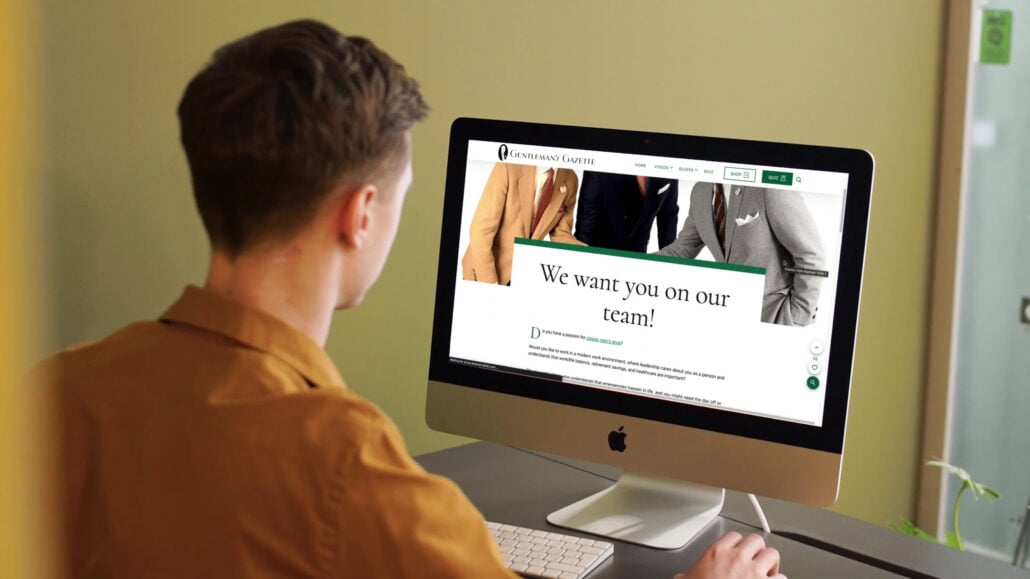
Before moving on to our actual list, we will open with a general piece of advice. A basic understanding of the expected formality of dress and company culture at your prospective job site should always inform you what you do and do not wear to a job interview. Obviously, you won’t know what is normal daily wear before an interview but you can take basic steps to research your company through its advertising, social media presence, as well as what type of company it is.
Generally, legal and financial firms will have a more traditional and formal dress code than technology or creative industries. A common rule of thumb is that for an interview, you should just one step up the formality scale from what is regularly worn by employees from your prospective job. Unless of course, business formal daywear was already the norm in which case we should wear that to the interview.
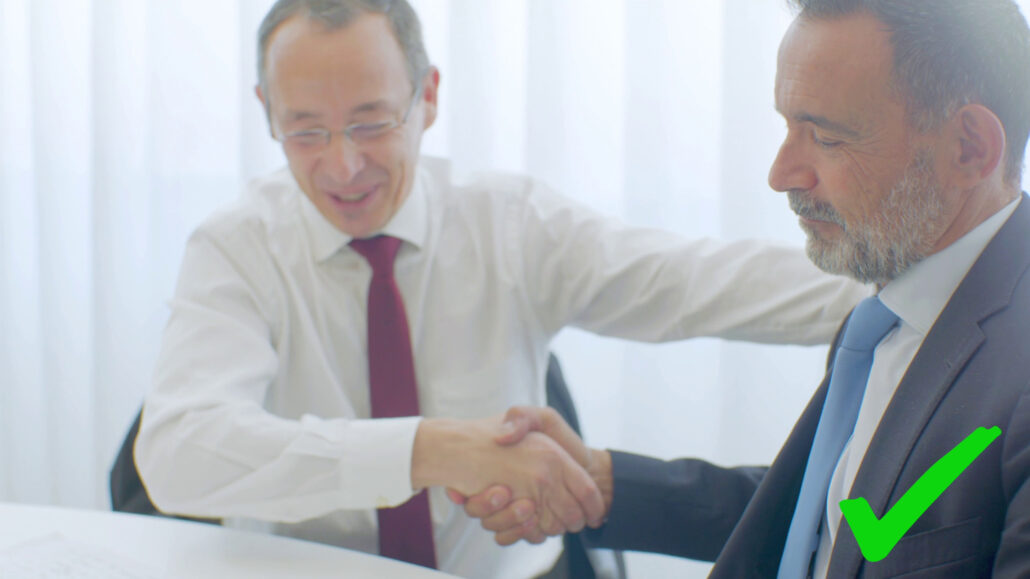
Don’t worry, they won’t expect you to go up one more step and arrive in a morning code. For instance, at a tech firm, most employees usually wear polos and khakis, typical of smart casual. We believe that you should not wear garments at that level for the interview. You should instead dress at least in business casual attire. Nine times out of ten, we think that very few interviewers will be put off by your desire to dress more formally.
Even if you’re applying to work at a lawn care service, most managers and interviewers will know that you’re wearing a button-down shirt not because you’re expected to be wearing one while you’re mowing the lawn or trimming hedges but as a sign of respect for the hiring process and for the people conducting your interview.

We understand that as mentors become increasingly casual, it is a challenging time to determine what to wear when applying for a job. The older times that you should always wear a suit and tie does not apply to all businesses nowadays. Some advice floating around online even suggests that you should explicitly not wear a suit and wall suits aren’t a good fit for all job-type interviews.
We still feel that most interviewers will appreciate the fact that you took the time to dress up and look nice for the interview. So while it can be difficult to determine what exactly to wear to an interview, here are some items we have no problem advising you not to wear.
1. Brand New Unworn Suit (Or other totally new garments)
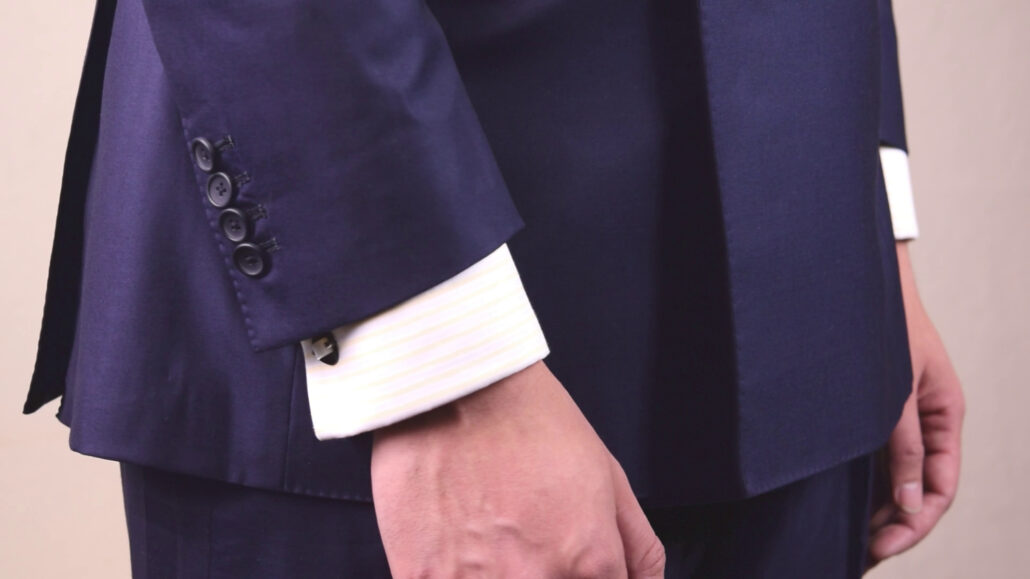
In preparation for your big interview, you might treat yourself to a shopping spree and acquire a new suit. This is a fun way to hype yourself up but just make sure you’ve worn everything you buy at least once before the big day. This will allow you to ensure that the clothes fit well because they might need to be hemmed or altered. Give yourself plenty of time between buying the clothes and the interview to get that work done. Two to three weeks should be a good buffer for most alterations.
Wearing the suit before the interview will also give you time to become accustomed to it so it feels comfortable and lived in. Terence Young who directed several early James Bond films, had allegedly encouraged Sean Connery to sleep in his suits so they felt as natural to him as his own skin.
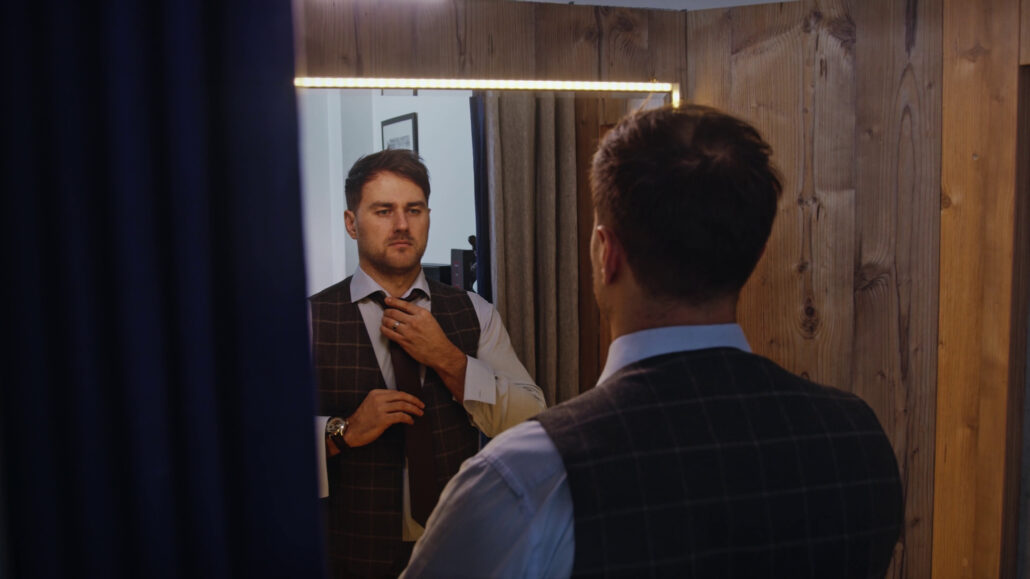
Remember to remove any pens, tags, or tack stitching that might be on your suit, and be mindful of things like pressed and creases on brand-new clothes. These are especially obvious and the square creases indicative of a fresh-out-of-the-box dress shirt will also add that if you don’t usually wear a suit. Don’t let your interview be the first time. If you’re not accustomed to how a suit feels, it might appear uncomfortable and feel less confident so either train yourself by wearing the suit a few times socially before the interview or opt for a more casual but still dressy ensemble.
2. A Wrinkled Shirt (Or any unkempt clothing)
Having decided on what kind of shirt to wear, you want to make sure that it looks its best. And the hustle and bustle of getting ready, it can be easy to forget to iron your shirt. But wrinkled shirts are glaringly obvious as many commenters on our social media are rightfully quick to point out and they can make your entire outfit appear more disheveled.
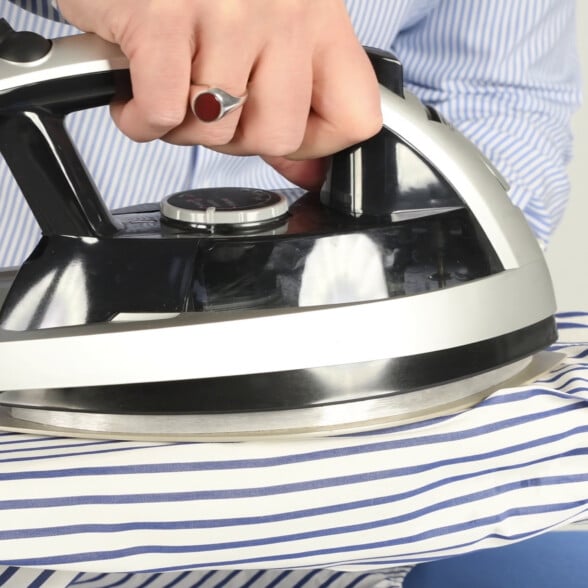
A Wrinkled Shirt
Ironing
Ironing your shirt is a simple and easy task that will massively improve your look but also your confidence.
Fortunately, ironing a shirt is a simple, easy task. And a crisply iron shirt will not only massively improve your look but also your confidence. You should also take care to ensure that every other garment in your ensemble is neat and tidy by shining your shoes, ironing your trousers, and removing any creases from your jacket. Look at the pocket flaps or along the lapel. As one of our writers, Eb Daniels should have remembered. Fortunately, he recently re-watched our video on how to iron a suit jacket. So all is now well.
3. Underwear (Or anything that means to be “Worn Under”)
Obviously, we’re not suggesting that you go commando to your interview. What we mean here is that the garment designed to be worn under your clothes should stay there. We suspect that you know not to show up to an interview in an a-line or other types of undershirts unless, of course, you’re trying to join Tony Soprano’s crew.
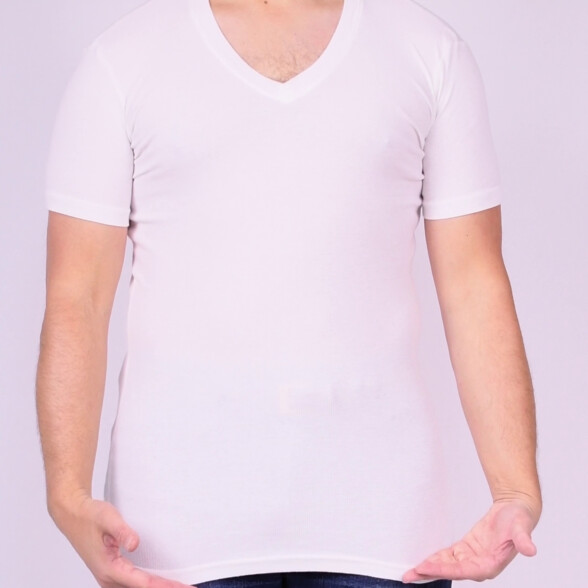
Underwear
Sheer Undershirt
Avoid wearing undershirts that are made from lighter materials that are too sheer and informal for a professional setting.
Undershirts are made from thinner lighter materials than other shirts and are often too sheer and informal for daily wear in a professional setting. We also want to emphasize not showing your undershirt through your outer shirt either by the undershirt peeking out by the sleeves or the chest or being visible as a clear outline under your dress shirt. One way to reduce undershirt visibility is to wear a gray undershirt rather than a black or white one.
Undershirts For Men
4. Tee Shirts (And Similar Casual Shirts)
Moving on from undershirts, we also feel that t-shirts and similar casual shirts like Henley’s, jerseys, and sweatshirts should not be worn at job interviews. The world is getting progressively more casual but you can’t really say that you’ve dressed up for an interview on a t-shirt.
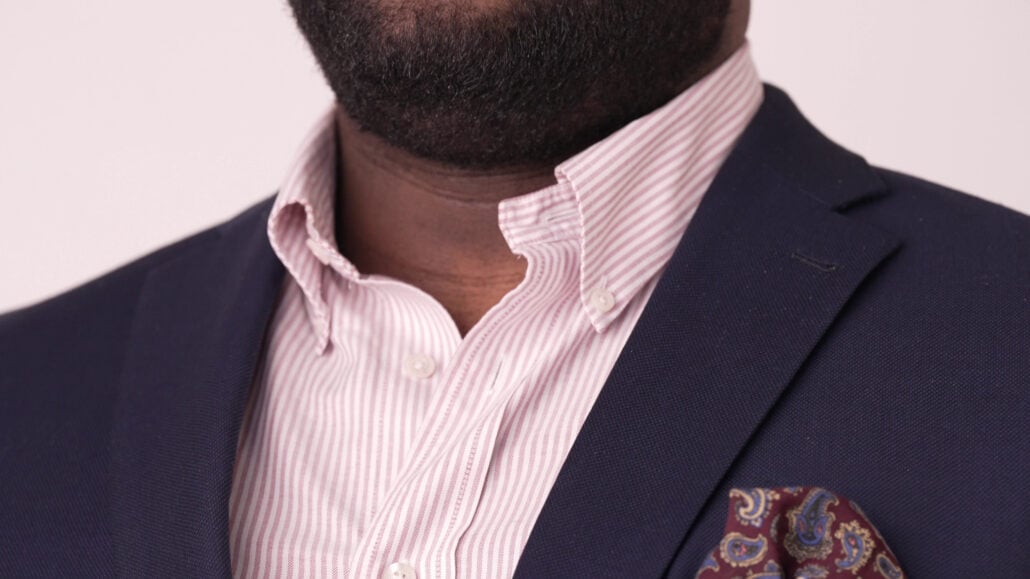
T-shirts are about as low on the formality scale as you can go. For even the most casual work environments, you’re better off with a shirt with some kind of collar at least. If you need help building a refined and versatile dress shirt collection, we have our list of the first 10 dress shirts a gentleman should own.
5. Casual Jeans (Or any trousers lower on the formality scale)
Similar to t-shirts, it’s hard to get dressed up in pants that are on the lowest range of the formality scale. This obviously applies to athletic trousers like gym shorts or sweatpants, utilitarian trousers like cargo pants or painter’s pants, or leisure trousers like shorts but can also apply to denim jeans.
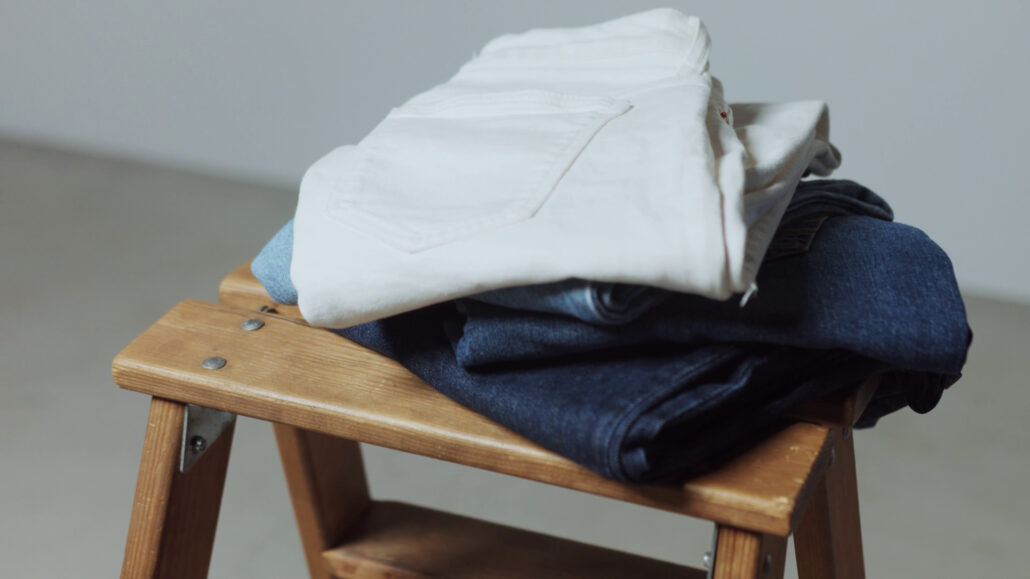
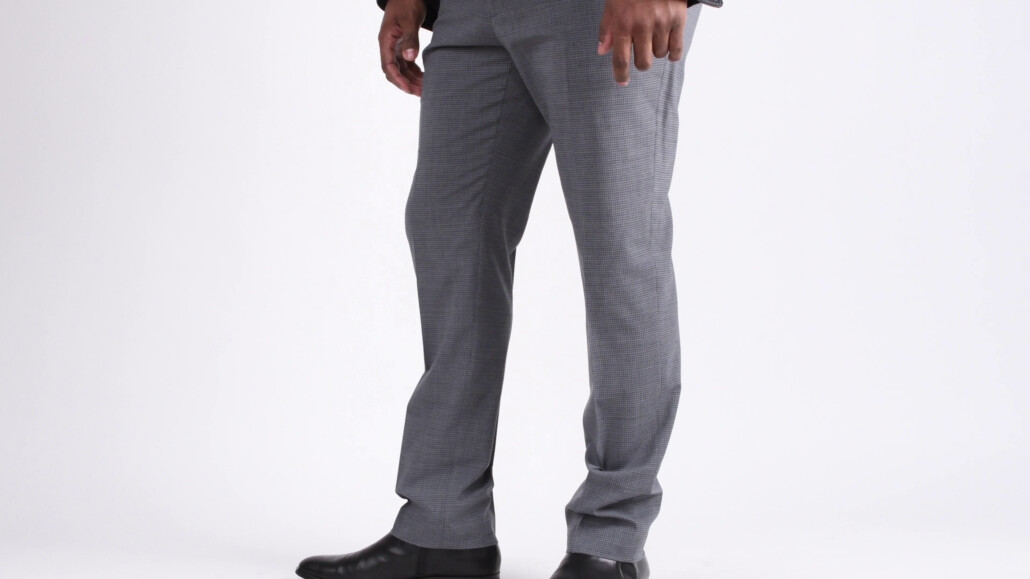
While jeans are increasingly perceived as normal and even more formal, the majority of jeans are still fundamentally casual garments and so can’t be considered dressing up. In most cases, we feel it is safer to opt for more obviously professional dress slacks or chinos. If you really want to wear jeans, we suggest dressing them up a bit by properly combining them with a blazer or sport coat.
6. Sneakers with Gym Socks (Or similar casual shoes & socks)
Shoes are too often the weak point in an outfit because they’re selected more for perceived comfort and convenience rather than styling potential. As a result, overly casual shoes will often drag down an outfit especially when paired with a more formal ensemble. You don’t necessarily have to wear dress shoes do a job interview but you should avoid athletic shoes, open-toed shoes like sandals or flip-flops, and distracting trendy shoes.
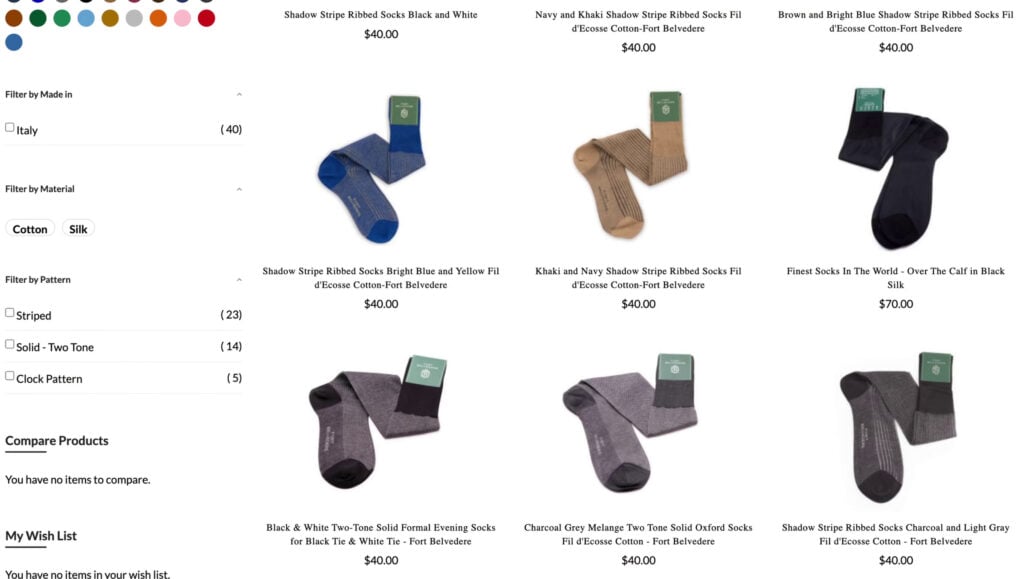
And if you do decide to wear leather shoes, don’t spoil their appearance by pairing them with boring run-of-the-mill black socks or even worse, white gym socks. Instead, get yourself a pair of quality dress socks and refined classic colors. At our Fort Belvedere shop, you can easily stock up on essential dress socks because we offer considerable discounts for bulk purchases.
7. An Oversized Logo Shirt (Or similar distracting articles)
Speaking of distractions, well at a job interview, you should be selling yourself and not the brand of the clothes that you’re wearing or your ability to build an outlandish outfit. Unless you’re applying to work at an avant-garde fashion house. Clothing with obvious branding like oversized logos intrusive crests or names won’t contribute to deliberations about whether or not you’re a good fit for the company and could give the weird impression that you’re trying to flex on the interviewer.
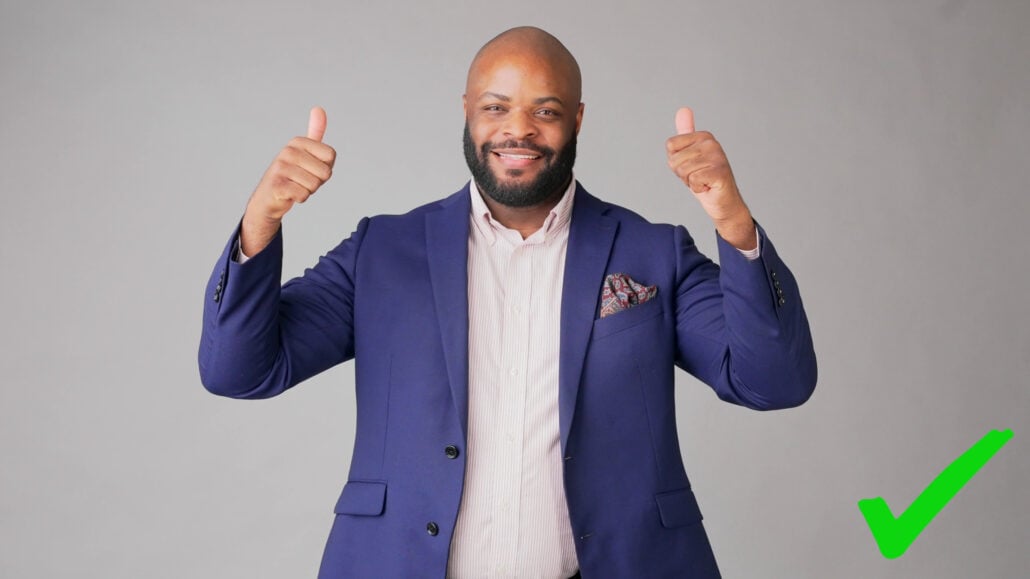
Instead, go for clothing with tasteful or hidden logos. And in general, we think it’s a good idea to just avoid clothing with any prominent phrases, slogans, or text. The interviewer should be reading your resume, not your shirt front. This advice also applies to any other part of your outfit that could be distracting like over-the-top accessories like excessive jewelry, overly bold colors, prints or patterns, or any flashy detailing. The interviewer should be focused on you, not exclusively on your clothes.
8. A Beeping Smartwatch (And similar noisy tech wearables)
Wearable tech can make our lives more convenient but it also has the propensity to go off at the worst times. You might remember to silence your mobile phone. But what about the timer on your Fitbit that reminds you to get up and get an additional 200 steps every 45 minutes? Or a smartwatch that chirps or vibrates every single time someone tries to slide into your DMs?
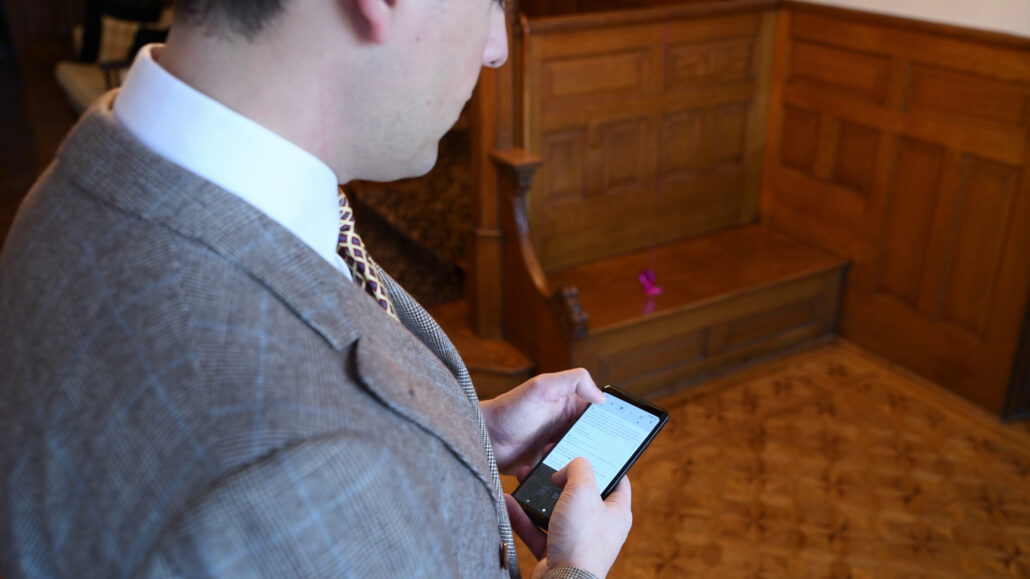
So make sure that you silence all the tech that you are wearing before you go into the interview or don’t wear it at all. Be aware also of how wearable tech might appear to the interviewer. If you leave a Bluetooth device, headphones, or earbuds in your ear even if you’re not listening to anything, the interviewer might think that you’re not paying attention so be sure to remove them.
9. Excessive Fragrance (Or any overly smelly products)
We’ve done several videos on what not to wear on different occasions and too much cologne is almost always on one of them. The excessive fragrance is extremely distracting and off-putting because it implies that you are relying on the perfume to give you a boost of false confidence. Or that you are attempting to hide a worse smell with pleasing scents.
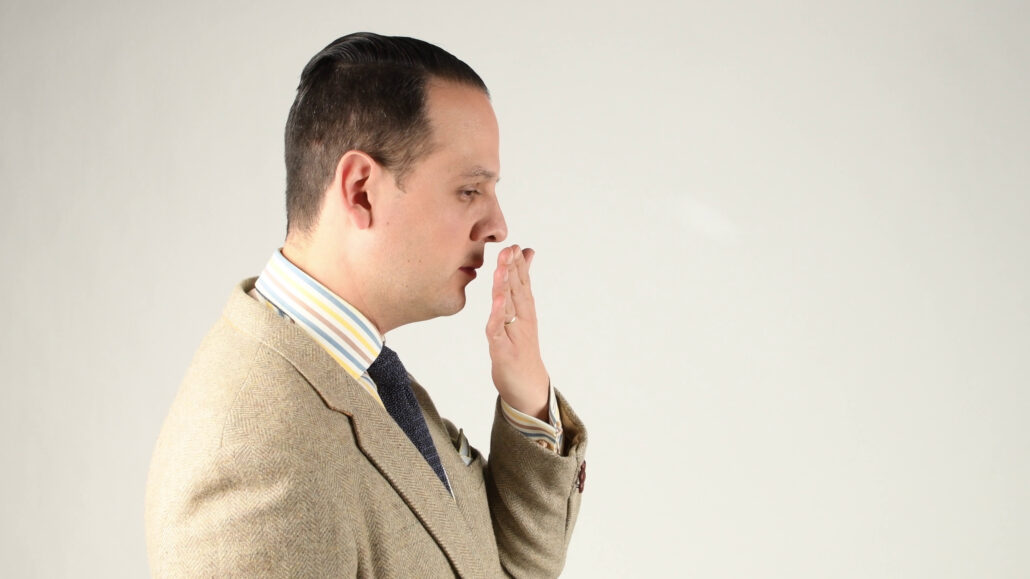
In the worst-case scenario, your interviewer or someone in the office might have an aversion or an allergy to strong smells. It’ll be difficult for the interviewer to give you a fair appraisal if the cologne is giving them a headache. Other products like shampoo, hand creams, lotions, and soaps can also produce excessive smells.
10 Cologne Hacks for Men
So don’t wear any scented product to an interview unless you know how it interacts with your body chemistry and how strong of an odor it produces. Make sure that you’re wearing fragrance in a sparing unobtrusive way.
10. What You’d Wear on the Weekend
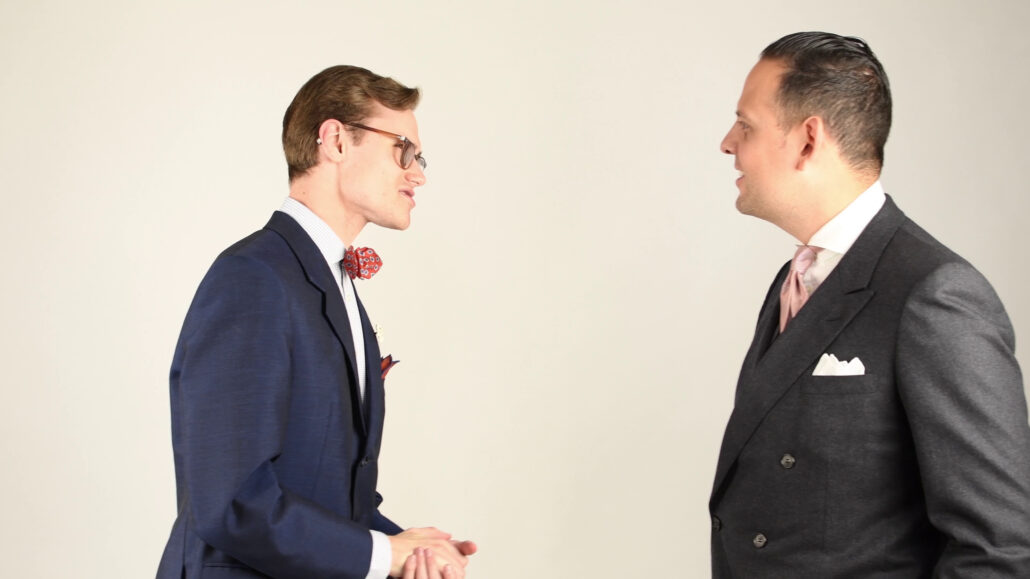
Or any clothing that would imply that you’re not taking the interview seriously. A job interview is an important occasion that could determine the trajectory of your job or career. You want to make it clear to the interviewer that you understand this and a simple way to do this is by dressing up. This does not mean that you have to wear a three-piece suit to every job interview. But for every job interview, you should make some kind of effort to elevate your appearance to make it clear you understand how important the interview actually is and that you respect the interviewer’s time.
Therefore avoid wearing clothing that you usually wear doing casual social interactions, like when you’re relaxing on the weekend, or clothes that don’t reflect a professional atmosphere. Like what you’d wear when going out on the town especially if you are interested in cultivating a look typical of classic style.
Conclusion
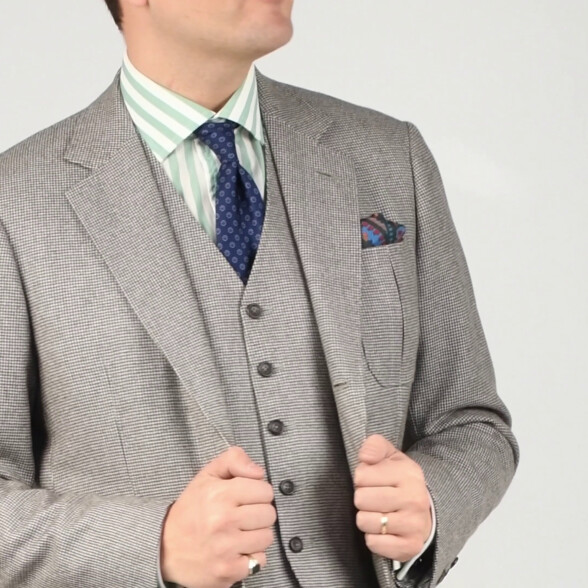
conclusion
Look your best!
Your clothing should always fit the occasion and a job interview is a relatively formal professional event where it pays to look your very best and present your attire in the best possible light.
With dressed-up clothing that accurately reflects your personal style and shows that you appreciate the seriousness of the occasion. And if you need any help determining how an elevated refined approach to classic style can be integrated into your wardrobe, you may check out the Gentleman’s Gazette youtube channel.
Ultimately, you always want to present your best possible self during your job interview and we helped them by highlighting what we think you ought never to wear and we hope you do this.
Let us know what you’ve worn as an interview outfit as well as items that you always avoid. Would you hire me based on what I’m wearing today? Let’s run through it and find out.
Outfit Rundown
Kyle is wearing a two-piece raised suit with a blue and white striped shirt along with a fantastic Fort Belvedere pocket square, a great watch from Nomos, red and blue shadow stripe Fort Belvedere socks with brown dress shoes.
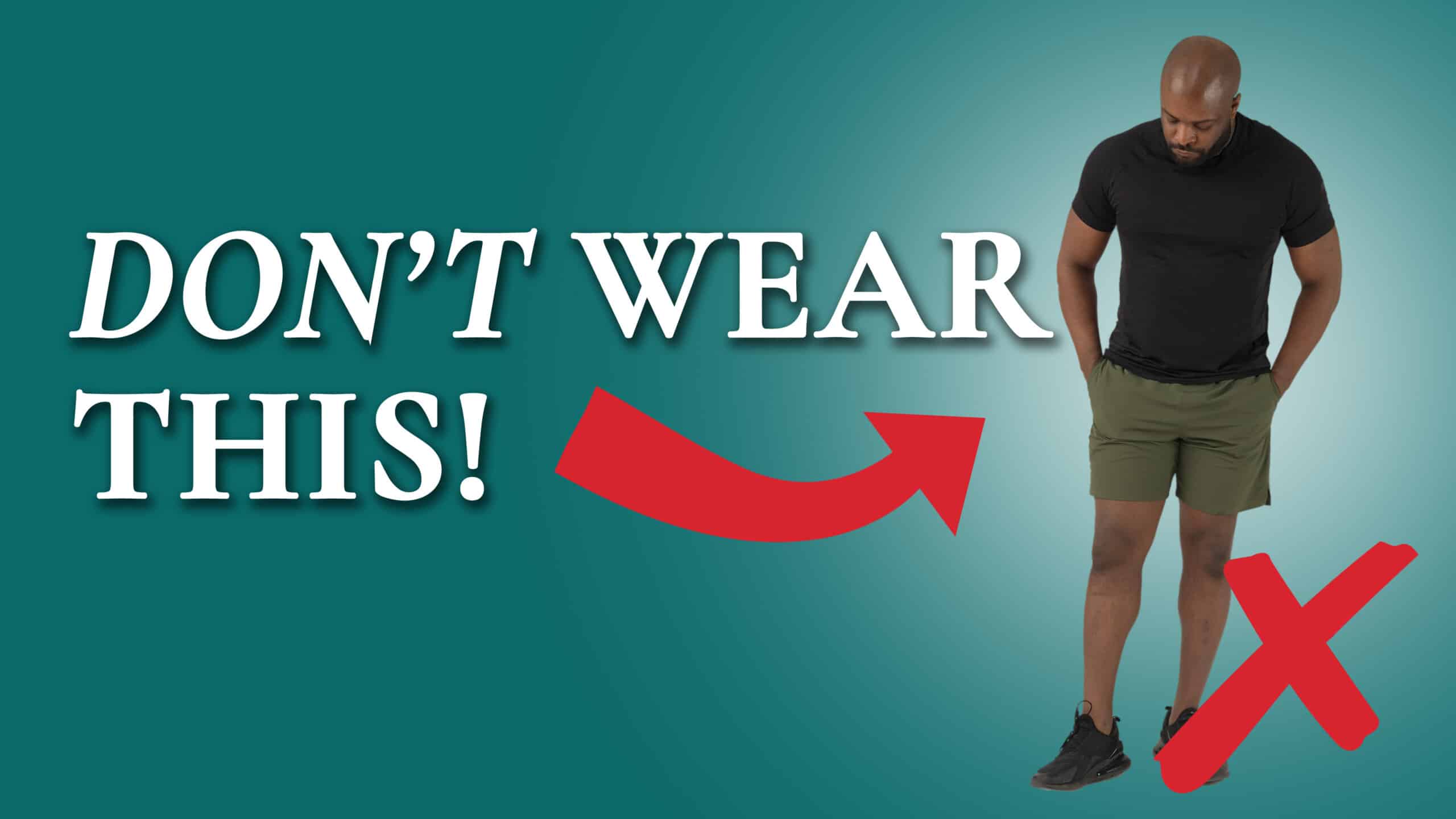

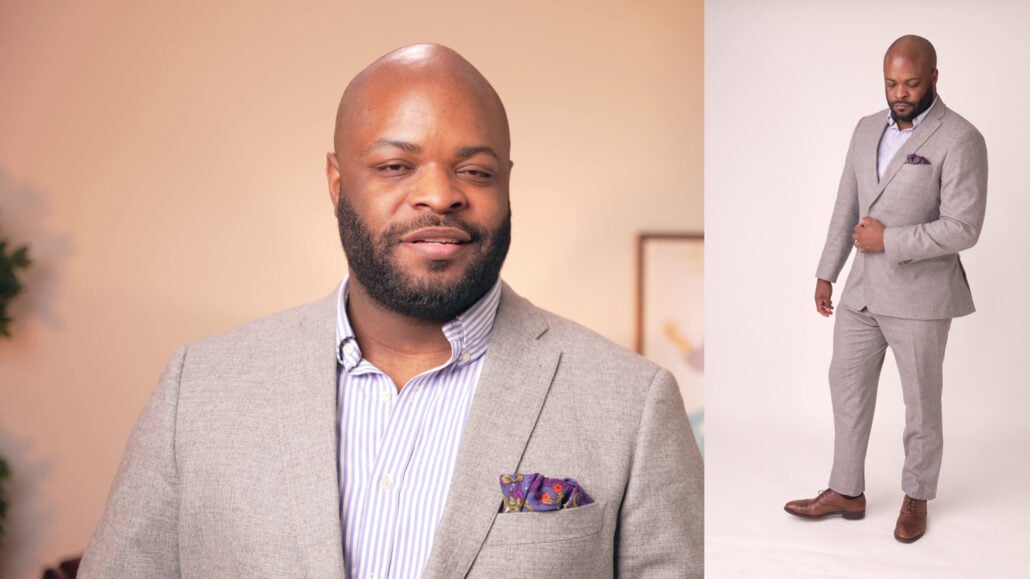
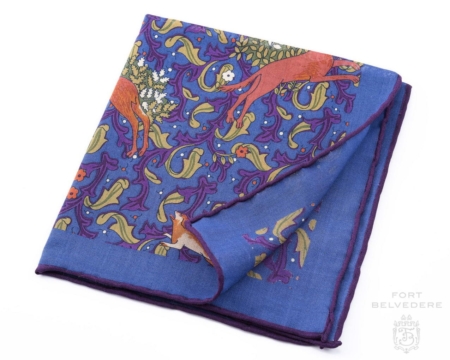
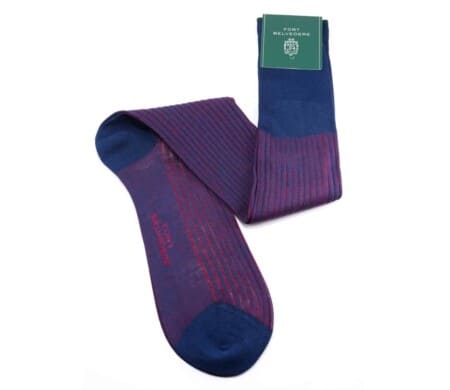
Good vid for tyros, but likely that the sophisticated viewers at GG would not be having any sartorial epiphanies after viewing. Still, a help for style newbies can’t hurt.
Great advice, including the perhaps-unexpected tip to avoid wearing brand-new clothing (but if you do, to ensure you’ve removed any tags). I once interviewed a candidate who turned up in an obviously new off-the-rack suit that still had the brand label’s tag on the sleeve. My first thought was that he hadn’t noticed it was still there, which raised doubts about his attention to detail. At the end of the interview, however, I gently pointed out the tag to him, only for him to say that he hadn’t realised it was supposed to be removed! This answer made me question his comfort level navigating a business setting. In the end, I didn’t hold this against him and gave him the job, but it’s quite possible that the tag could have cost him the position if I’d been deciding between him and an equally qualified competitor who was more at home in a suit.
I’d like to add another one although for the benefit of new GG viewers as opposed to classic menswear enthusiasts with a firmer handle on how to dress for a job interview: don’t wear workwear uniforms to interviews even if they’re relevant to the job you’re applying for. Examples include a nurse or other healthcare worker such as a physiotherapist (typically wear uniforms in health services) applying for a comparable position at another health service. Or a personal trainer where their gym requires them to wear a uniform (a particular muscle shirt or t-shirt with a particular coloured pair of shorts or sweatpants +/- specific logos) as part of their job. I can understand not wearing the full suit and tie ensemble for these types of jobs but don’t attend in the uniform of your current employer.
Hi
your latest video really helped me .
Many thanks
Regards
Krzysztof